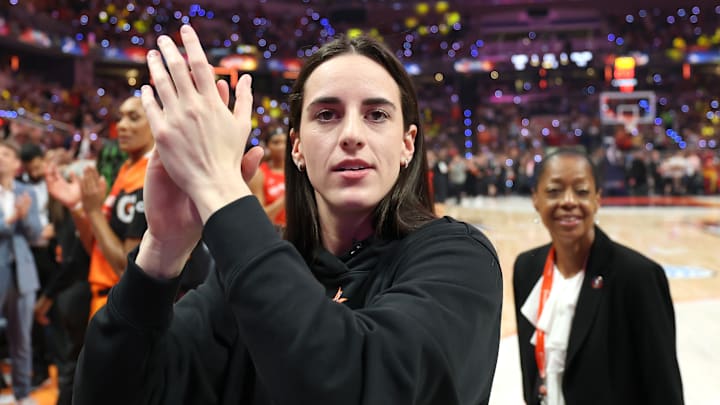Caitlin Clark was one of approximately 40 WNBA players who joined in-person Collective Bargaining Agreement (CBA) conversations with Cathy Engelbert and league leadership this week. While speaking to reporters ahead of Saturday's All-Star Game, Clark emphasized that a sizable portion of attendees were her age or younger, and that all the players are aligned on a crucial point: "We should be paid more."
Clark acknowledged the impact that brand deals she and many WNBA players have established helps take the weight off their shoulders when it comes to making money, but also emphasized that the league itself should be providing more than it currently does. A first-round rookie in the WNBA who is drafted in the top 4 spots makes $78,831 a year – a third-round rookie who manages to stay in the league can expect to make $66,079 during the first year of play.
"I think that's one of the things that we're in the room fighting for," Clark explained, "is we should be paid more, and hopefully that's the case moving forward as the league continues to grow. I think that's something that's probably the most important thing that we're in the room advocating about."
What WNBA players want in a new CBA
This week's in-person meeting gave many rookie and sophomore players the opportunity to see and understand how such negotiations happen. As Angel Reese told reporters Friday, being in the room as both the players and the league made their case was an invaluable experience. "I was really eager to know and understand what was going on. So I’m very aware of what’s going on right now. We won’t stop until we got what we want," she said.
WNBA players are pushing for key changes in how much they are paid — an especially important topic as the lead continues to sign major deals (like the $200 million a year media rights deal penned in 2024) and viewership and attendance both continue to grow. The WNBA has also ramped up the expansion fee significantly — the Golden State Valkyries paid $50 million in 2023, and the Detroit, Cleveland, and Philadelphia expansion groups will pay $250 million each.
If their demands are not met, players could end up striking before the 2026 season — a reality that would be difficult for everyone involved, including fans. Both parties have emphasized that they believe a deal can be reached before a strike would happen, but it's not entirely clear what direction the league is attempting to move the conversations toward.
